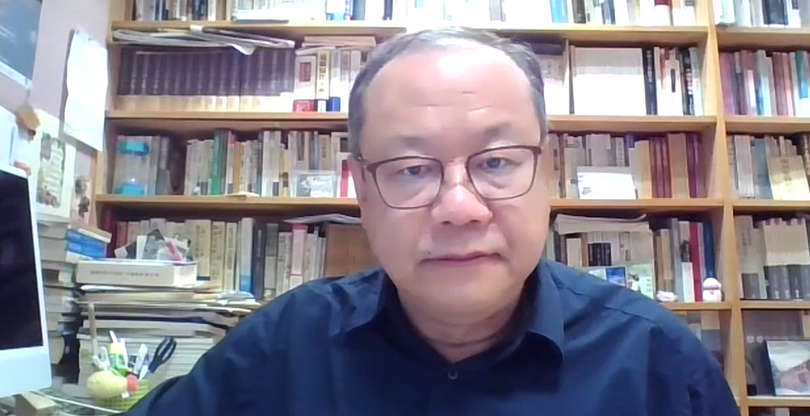On June 30, Rev. Dr. Song Jun gave a book launch lecture titled "A Historical Narrative Trilogy: The Respective Interpretations of 'Anti-Imperialist Patriotism' in the Churches of China, Japan, and Korea" for his new book, A History of Christianity in China, Japan, and Korea under the East Asian Order.
Dr. Song began by establishing a common historical context for all three countries: the expansion of Western colonialism in the 19th century, which brought Protestant missionaries to the region. This arrival, he explained, coincided with the rise of intense nationalist movements focused on national survival, creating a complex and often difficult relationship between the new faith and the imperative of patriotism.
Turning to the case of China, Dr. Song detailed how Christianity's growth was inextricably linked to the unequal treaties imposed by Western powers, leading to frequent and violent conflicts known as "anti-missionary riots." He pointed out that while early opposition was based on traditional Confucian values, the critique evolved significantly by the 1920s. Influenced by Marxist thought, nationalist movements began to denounce Christianity as an instrument of imperialism. In this environment, Dr. Song explained, the Chinese church sought to demonstrate its national loyalty through indigenization, primarily via the "Three-Self" principle. Following 1949, this principle was formally institutionalized, becoming the required framework for the church to sever its foreign ties and align with the state.
The Japanese experience, Dr. Song continued, offered a stark contrast, as it was dictated by the nation's Emperor-centric state ideology systematically constructed after the Meiji Restoration. He emphasized that patriotism in this context was defined as absolute loyalty to the divine Emperor and the unique Japanese "national polity" (kokutai). Consequently, "anti-imperialism" was aimed at Western concepts like individualism that were deemed incompatible with this ideology. Faced with immense state pressure, the Japanese church largely conformed, particularly on the issue of mandatory Shinto shrine worship, which the government defined as a secular, civic duty. According to Dr. Song, this process culminated in the 1941 formation of the United Church of Christ in Japan, whose "Lifestyle Guidelines" explicitly required believers to "follow the Imperial Way and live out their faith in order to support the eternal destiny of the Imperial Throne." Its catechism went even further, defining the ultimate purpose of Christian faith as the means "to practice the way of the loyal subject and serve the Empire."
Finally, Dr. Song presented the Korean case, where he argued the narrative was shaped entirely by its experience under Japanese colonial rule. As a result, "anti-imperialist patriotism" became synonymous with the anti-Japanese independence movement. He highlighted the prominent role Christians played in this struggle, most notably in the 1919 March 1st Movement. The most critical point of contention, he noted, was the forced participation in Shinto shrine worship, which created a deep schism within the Korean church. This conflict produced both martyrs who resisted and collaborators who complied.
Dr. Song concluded by outlining how "anti-imperialist patriotism" took on three distinct meanings across different contexts. In China's revolutionary narrative, it became a binding constraint, forcing Christianity—seen as tainted by Western "original sin"—to transform and demonstrate loyalty. In wartime Japan under imperial rule, it served as Christians' primary means of proving allegiance, ultimately producing a syncretic "Imperial Christianity." For Korea, enduring national subjugation, it offered Christians a way to share in collective suffering and embody the spirit of the cross. These legacies persist today, Dr. Song argued: for Chinese churches, it remains an inescapable contextual challenge; for Japanese churches, a painful historical taboo; and for Korean churches, a badge of honor that has earned national respect and is commemorated annually during March 1st Movement celebrations.












